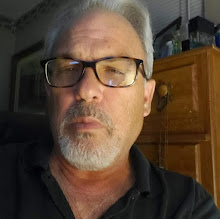Judging from the title, it would seem I am being given a
great deal of weight by the author, who is also me. Anyhow, I will try to focus
on the subject in this opinion editorial type deal. Considering that there are
over 2 billion Christians worldwide, I am pretty sure that each individually
would possibly have a different opinion than myself which shouldn’t be underestimated,
as well. However, this is my blog and I have taken the time to express, so I
would be grateful if you spent a little time reading it. Here we go!
St Paul said: “There is no longer Jew or Greek, there is
no longer slave or free, there is no longer male and female; for all of you are
one in Christ Jesus (Galatians 3:28, NRSV).” Today, that foregoing list
could be easily expanded, if one was being politically correct, although
generally the idea seems to be clear.
The first place where the name Christians was used was in
Antioch in ancient Syria. Antioch, however, is no longer. Today that city is
Antakya in Turkey. Christianity pretty much grew in Asia Minor, which is mostly
Turkey today. North Africa was also another cradle for Christianity. Many of
the places Christianity grew are mostly Islamic today. But Christianity has
spread into most of the world and continues to grow at different rates
depending on which place or region, or continent. I suppose many Christians, in
one way or another, believe they are Christians based on what is understood
that it is from the New Testament. Of course, many of us today probably have
very little understanding of what it meant to be a Roman or a Thessalonian, a
Colossian, or an Ephesian. We can research the history of all those
regions with which St. Paul corresponded; however, I really doubt we will ever
really know and understand those times and places, just as they would probably
have never understood living in our time regardless of how well we described
it. Anyhow, St. Paul perhaps wrote almost 14 of the total 27 books of the NT,
and I am pretty sure he may have been influential in the works by Mark and
Luke. Basically, all those writings became canonized. In Easter of AD 367,
Athanasius’ Festal letter pretty much summed up it will only be the 27. I will let you do the
research on that if you want to know why? Moreover, the subject questions where
is Christianity today?
Christianity today is a hybrid of all the versions of
Christianity which have existed because obviously we can’t be the same as in
the first century. The message I am probably attempting to convey is that maybe
we should be asking the question, why we are Christians? Is it because we like
joining that sometimes social club, the church, or do we really know our
history, why we exist, and why we think we know who we are? I think one of the
bigger questions I have is if Christianity was the strong faith, we think it is
today, why didn’t it survive to the same intensity in its original status in
places like Turkey and North Africa. I think that just based on some of the
rhetoric one hears from some Christian communities today, it is very evident
that we have a hybrid or different hybrids of the Christian faith. For
instance, many in the evangelical community will tell you “we are more than
conquerors.” Obviously, that more than conquerors mentality may have been
helpful to some in the past, it seems. Unless, maybe besides using the sword to
conquer, Islam did provide an alternate faith and support to many of our
brothers in the past. Of course, Islam is an Abrahamic faith and Christianity
is a branch of Judaism. The forgoing simply depends on how one interprets.
Also, I might have more to say about all 3, and their relationships as to where
Christianity is today, and conclusions might not be so different in the end,
regardless.
Perhaps, Christianity has just simply evolved into many other
forms, especially in this post-reformation era. Even during the Crusades, many
Western Christians were already unable to recognize Eastern Christians
mistaking them for Muslims. Move forward in time to the present-day in which we
have so many groups and denominations. Many Christians sometimes do not even
think other Christians are Christians since there are so many differences. Bottom
line: what I see is a jumbled-up mess. Of course, everyone thinks their form of
Christianity, or the one to which they belong is the correct one, or at least
the best one based on their induvial understanding. So basically, it is what it
is. It is better to have all the different denominations and groups than to not
have any Christianity at all. Hope you enjoyed reading and blessings!




No comments:
Post a Comment